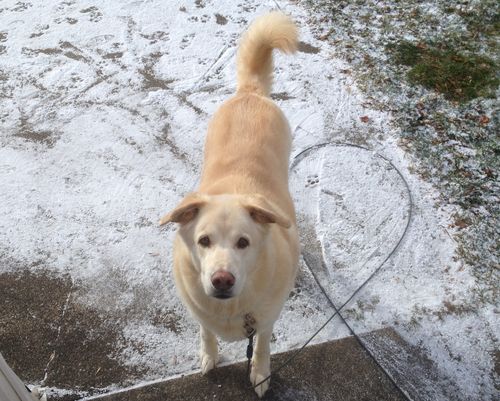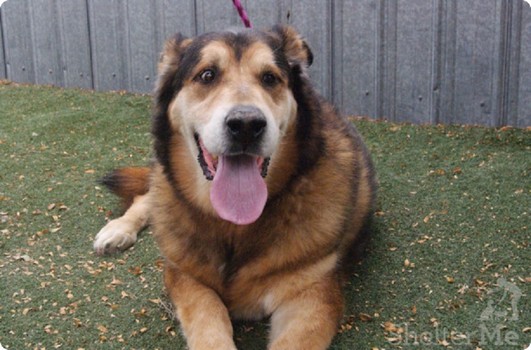Pet Health Awareness: Cold Weather Care For Your Pet
Post by Blog Manager Robbi Hess
 It appears that winter has settled into the northeast. I was not, and am truly never, ready for it. It's easy for me to deal with it though: I dig my boots and mittens out of the drawers and pull my winter coats and scarves out of the closet. I am prepared as I will ever be.
It appears that winter has settled into the northeast. I was not, and am truly never, ready for it. It's easy for me to deal with it though: I dig my boots and mittens out of the drawers and pull my winter coats and scarves out of the closet. I am prepared as I will ever be.
If you have pets, how do you prepare them for the colder months ahead? I know blustery, snowy days mean that Henrietta will be donning her jacket before she heads out the door. She refuses to go out without her coat but she also refuses to wear booties so I carry her down the porch when we have salted it.
Here are my tips for pet health care in the cold winter months ahead:
- Don't use rock salt (to melt the ice and snow) in areas that your pet will walk on. I carry Henrietta
 down the porch steps because salt between tender paw pads is painful.
down the porch steps because salt between tender paw pads is painful. - Use rock salt that is not harmful to pets. Become a label reader.
- Do not leave your pet in a cold car. Just as a car in the summer heats up too quickly for your pet to be safely left in it, your car in winter is frigid and could lead to hypothermia, frost bite or even death.
- Don't leave your pet tied out in the cold weather. If you have an "outdoor" dog make certain he has shelter and a warm place to escape from the cold. I don't honestly understand the "outdoor dog" concept as I couldn't imagine ever leaving my best friend out in the cold although our one dog, Spencer who is a husky-lab mix loves the cold weather.
- Remember that antifreeze has a sweet taste to pets but is toxic. Keep it stored out of the reach of your pets.
- Make certain if you have a pet that spends time out of doors that he always has access to fresh (not frozen) water and increase his food intake as he will be burning off more calories staying warm than he will during the summer months.
- If your pet has arthritis (as Henrietta, the Diva Poodle now does) navigating the stairs may be more tricky and painful for her than in the warm summer months when the pain of arthritis may not be so prevalent. You may need to either carry your pet outside or find an alternative to making him navigate the steps.
- If you have "outdoor cats" let them indoors during the colder months. Don't let them succumb to the cold weather or risk their paws or other extremities getting frost bite.
- If there are cats that roam your neighborhood, make sure you check in and under your vehicle before you start it. They may be drawn to the car when you pull in the driveway because of the heat of the engine and could be seriously injured if you start the car if they're under the hood.
- Did you know that dogs can lose their sense of scent in the winter? If you typically let your dog run loose, be aware that he may have a hard time finding his way back home if he wanders too far. The best advice I can offer is to keep him on a leash.
- Keep a towel by the door to wipe off any snow or ice that has fallen on your dog while he's outside. Make sure you wipe between his paw pads as well.
- Be aware that if you get a puppy in the winter you may have a harder time housebreaking her than if you were trying in the summer months. Puppies simply do not tolerate cold well and this could impact their desire to relieve themselves out of doors. You may need to housebreak your puppy indoors using puppy pads when the cold winter winds are blowing.
- Make certain your dog has a warm, cozy place to sleep in the house when you go to bed at night. Offer them a place that is free of drafts and where they can sleep without being chilled. In my house that means Henrietta is under the blankets taking advantage of the heat generated by the electric blanket but that may not work if you have a larger dog!
Common sense trumps all when it comes to cold weather. Put yourself in your pet's position and think, "Would I go outside without a jacket on in this weather?" If the answer is "no" for you, then it is likely "no" for your pet.
What steps do you take to keep your pet safe, healthy and protected during the winter months?



